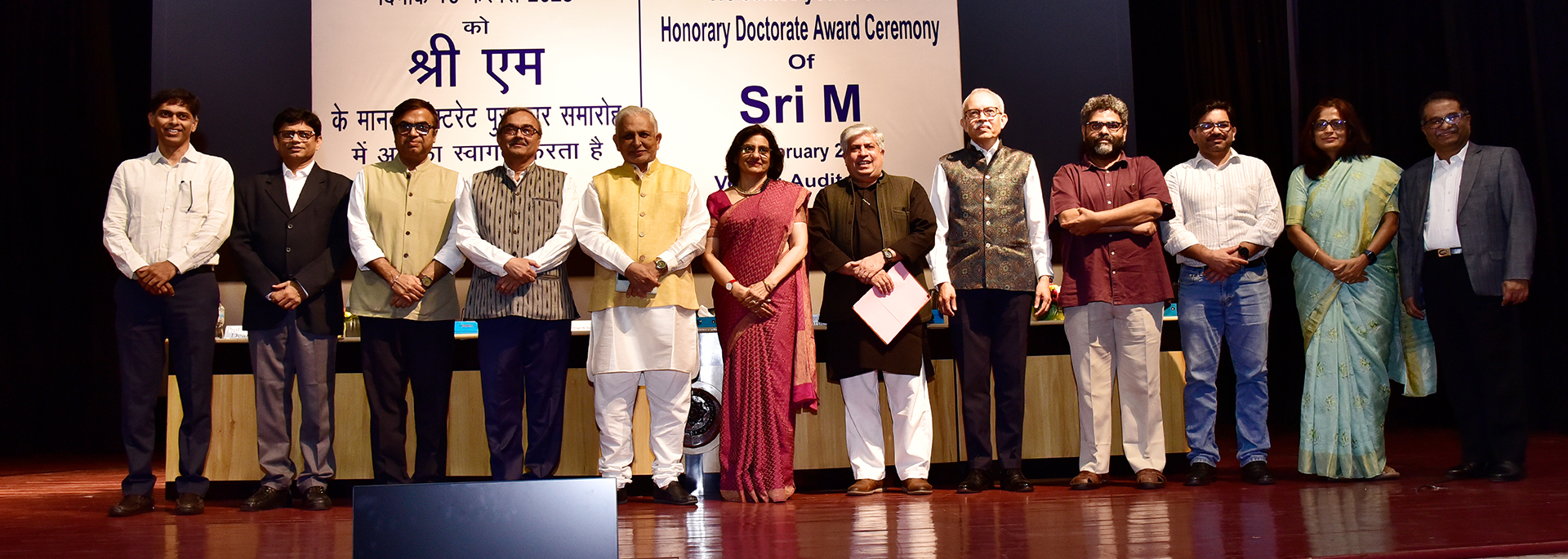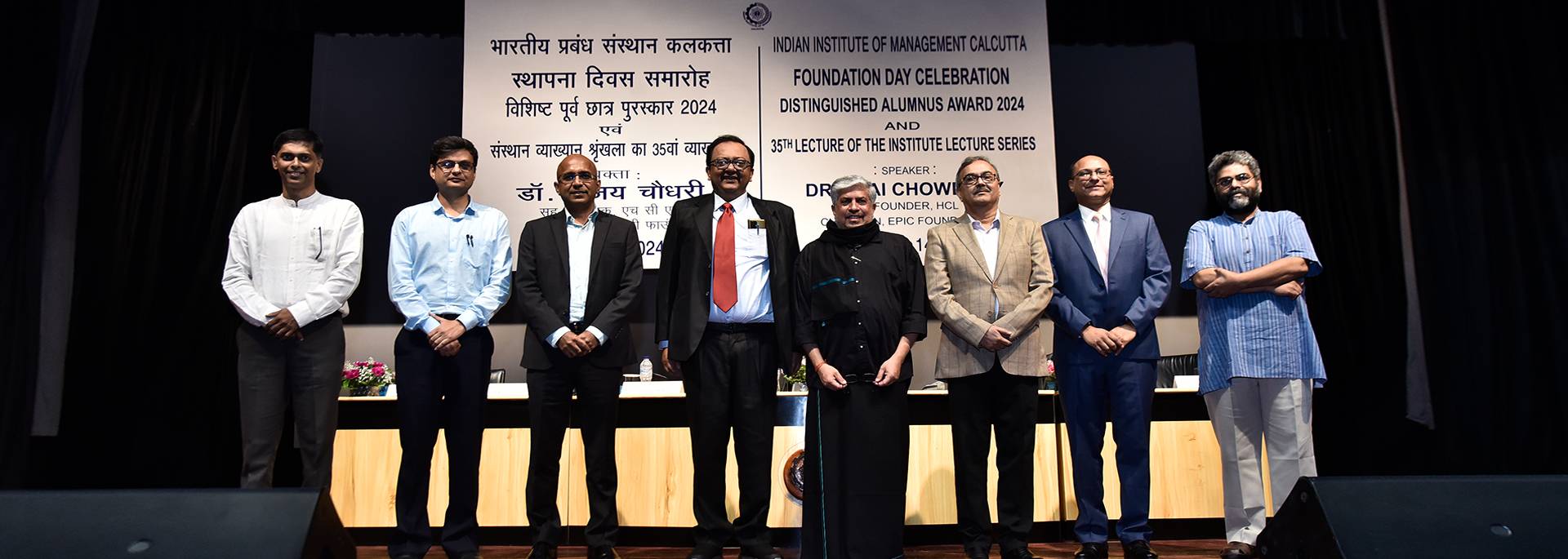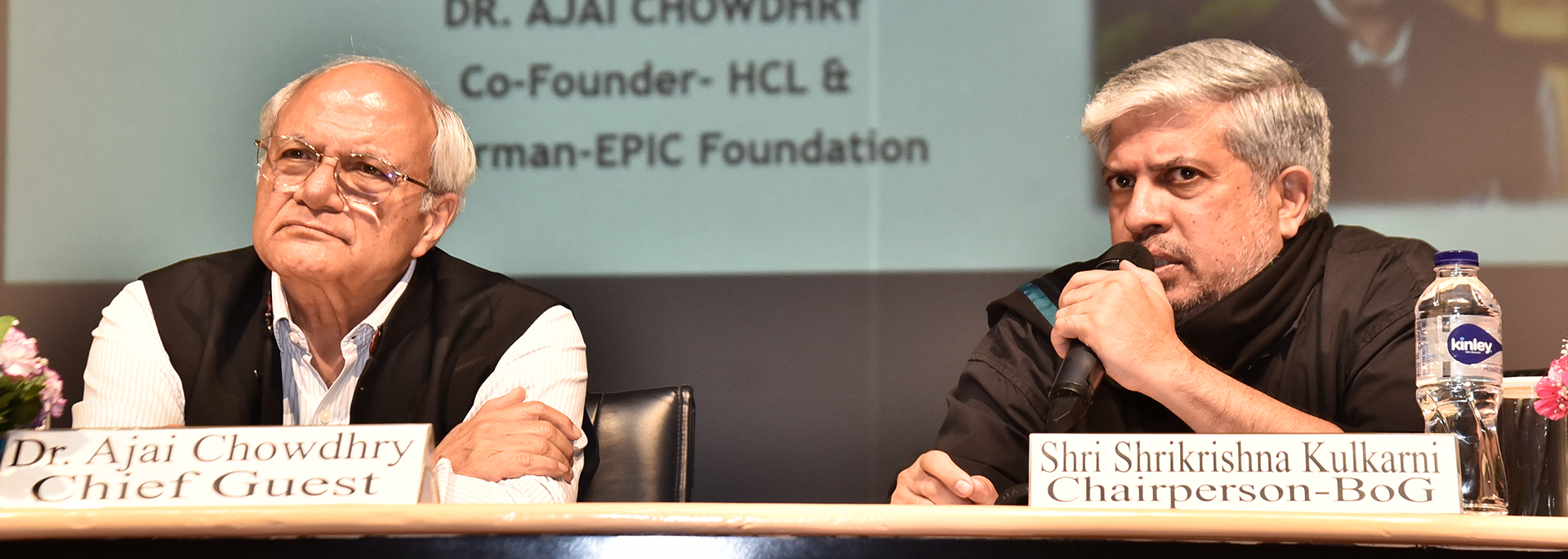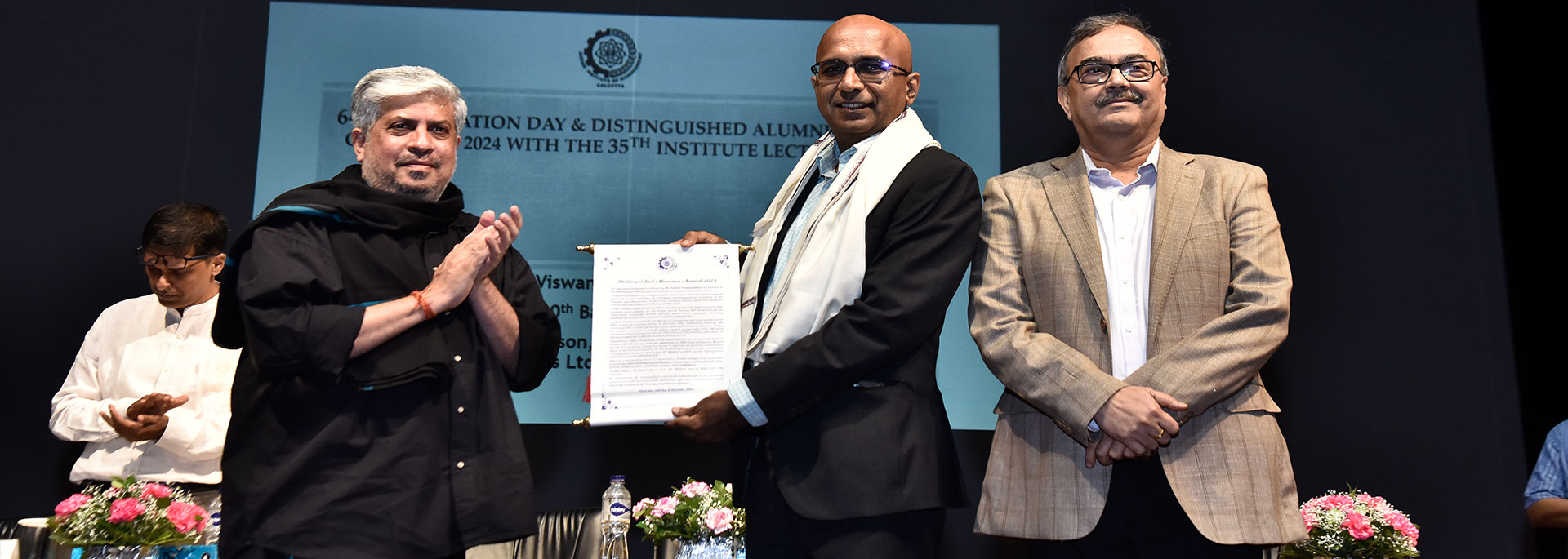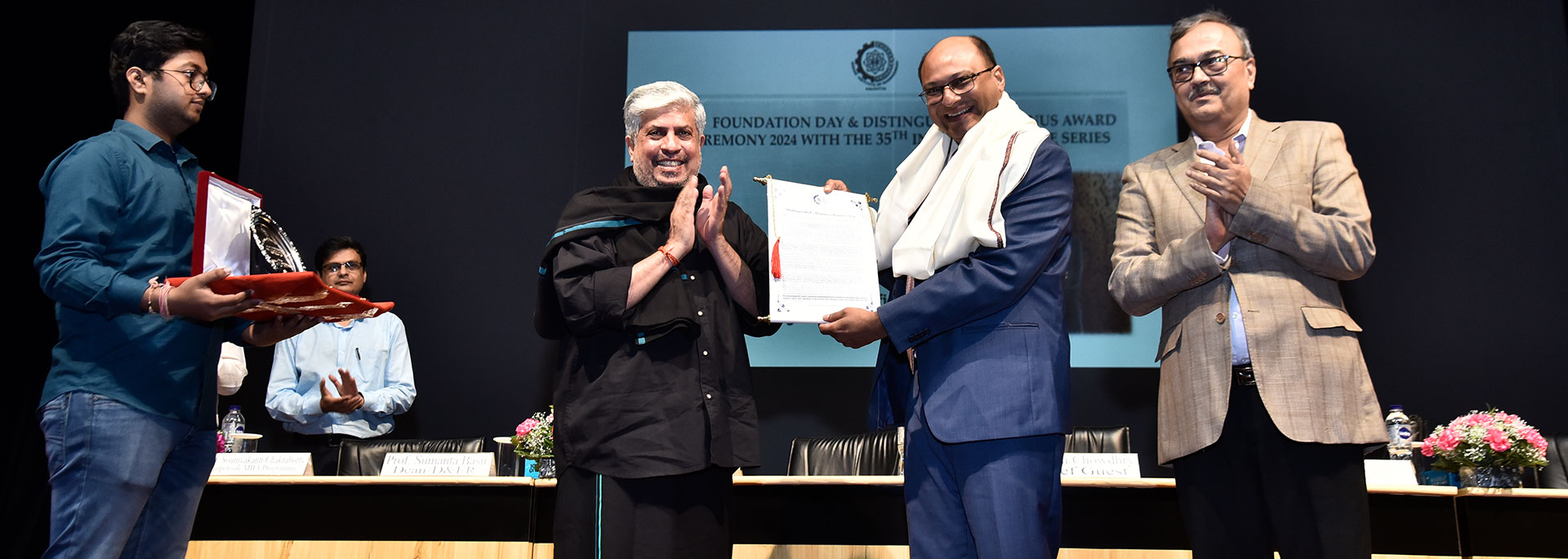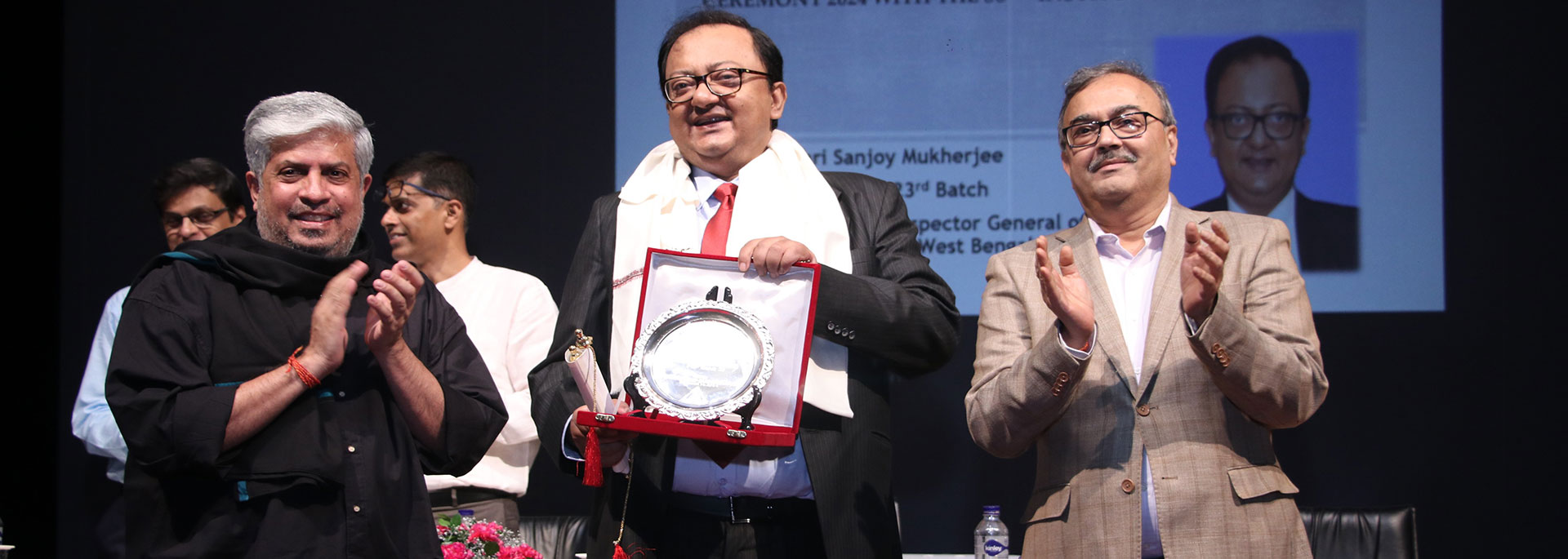Chairman and members of the board, Director, faculty, staff, students, families of the graduating students, guests, and, most importantly, the graduating students, please accept my sincere thanks for inviting me to be part of this joyous occasion. My congratulations to you, the graduating students, on your accomplishments and best wishes to you as you start your life as an adult taking on responsibilities for yourself and your society.
You will play an important role in shaping the future of this country and this world. You start your career at a time when competition is intense, opportunities are huge, and challenges are daunting. The Indian market has players from all over the world. Most Indian companies aspire to succeed in the global market. Why? Because, today, to succeed is to succeed globally, thanks to a phenomenon called globalization. What is globalization? Globalization is sourcing capital from where it is cheapest, sourcing talent from where it is best available, producing where it is most cost-effective, and selling where it is most profitable, without being constrained by national boundaries. The market players offering products and services in a country in such a globalized world could come from any part of the world. You use your mobile phone from China to order a taxi from Uber, a US company, to go to the airport built by Unique Airport Company, an airport management company from Switzerland. You fly IndiGo, an Indian airline, in an Embraer aircraft, a plane from Brazil. You stay in Accorhotels, a French hotel company. In other words, several nations are participating in making your life more productive and comfortable right here in India!
What is common amongst these companies? It is their ability to transcend national boundaries and compete successfully in foreign lands. What are the attributes required for such an ability? First of all, they believe like my friend, Rahul Bajaj, that the best management guru is competition. These companies perform every day with the belief that succeeding in competition will make them stronger, larger, smarter, faster, leaner, fitter and more profitable. Everyday, they learn from their competitors in one part of the world, and leverage that learning to operate more successfully in another part of the world. They also create several next practices. It is this competition that has helped these companies become more and more customer-focused, employee-oriented, and investor-driven day after day. Therefore, the most important advice I can give you is to embrace competition with enthusiasm and alacrity, and to ride the wave to your own and your company’s advantage.
Every human being, no matter what part of the world he or she comes from, faces a very important challenge early in life. That is to develop the power of mind to win the battle in favor of a competitive, progressive mindset over a regressive mindset. A regressive mindset is the negative force that holds one back from progress. It originates from the database of experiences resulting from diffidence, apathy, apprehension, negativity, dilemma, inadequacy and failure. A competitive, progressive mindset is the positive force that propels you forward towards progress. It emanates from the database of successful experiences resulting from confidence, curiosity, happiness, daring, success, open-mindedness and a desire to try out new ideas and become better. My friend, Raghunath Mashelkar, says that only those of us who work hard to transform our mindset from a regressive one to a progressive and competitive one will become successful in life. I want you to resolve today to win this battle if you have not already done so.
What are the attributes of a progressive, competitive mindset? Such a mindset is open to new ideas, no matter where these ideas come from. It creates an environment in the workplace where hierarchy of ideas rather than hierarchy of corner offices is celebrated. It heralds an era when everybody in the company – from a janitor to the chairman - feels like an owner since his or her ideas are listened to, judged on its merits, and implemented with alacrity should they be the best available. It creates a sense of “Can-do” spirit in employees of the company. Everybody with such a mindset lives the adage that a plausible impossibility is better than a convincing possibility. Such a mindset embraces meritocracy and open-mindedness, and engenders confidence, hope, enthusiasm and a sense of ownership among the employees. Such a mindset fosters a determination in every tired mind leaving the office in the evening to come back next morning with a renewed sense of “Will-do”. Such a mindset will ensure that fairness, transparency (on a need to know basis) and accountability are available in every transaction to every employee.
Speed is the other hallmark of such a mindset. Fair decisions will be taken as soon as the required data and facts are speedily collected rather than waiting for the lofty, unsubstantiated opinions of the corner office demi-gods. Such a mindset celebrates the adage, “In God we trust, everybody else brings data and facts to the table”.
Progress comes from good ideas. Good ideas come from an innovative mind that is ready to take bold decisions, that is not afraid of failure, that is ready to share its ideas with others, and that is ready to learn from others. Therefore, a progressive, competitive mindset has to be necessarily innovative, imaginative and open-minded. Let us remember that just good ideas alone have no value unless they result in a concrete, positive change. Such a change is only possible with flawless execution. Excellence in execution is an integral part of a progressive, competitive mindset.
Every one of you has the potential to become a leader in your chosen field. Remember that a leader is an agent of transformation. Transformation is a big-ticket change. No transformation is possible without a team of competent, optimistic, highly-motivated, energetic, enthusiastic, confident, hardworking and disciplined people. A productive working environment comes only from a happy and hungry human mind with high aspirations. Hence, your main challenge is to raise the happiness, hunger and aspirations of your younger colleagues. Late Robert Kennedy borrowed the words of George Bernard Shaw to say, “Most people see things as they are and wonder why. I dream of things that never are and then say, why not?”. Therefore, your challenge as a leader is to imagine a plausible hither-to-unthought-of idea which appears impossible and make it a reality. This journey requires aspiration, commitment, daring, hard work, discipline and sacrifice from everybody in your team with complete trust in your leadership. Such a transformational journey requires you, the leader, to create a grand vision; communicate that vision clearly to your team; convince them that the chosen vision will result in the betterment for everyone in your team; raise their trust in you through your leadership by example, walking the talk and practising the precept; and making them confident, enthusiastic, hopeful and committed; and making them feel an inch taller in your presence through your generosity of sharing the credit for accomplishments with your team.
No corporation is successful unless it earns the pride of ownership of its products and services in the minds of its customers; unless it earns the unquestioned loyalty, pride and enduring commitment of its employees; and unless it earns the full trust of its investors. Creating such a trust in your investors requires you to follow the adage, “When in doubt, disclose”. Even if you do all of this, please remember that no institution can demonstrate longevity unless it earns the goodwill of the society by ensuring that the primary interest of the society is put ahead of the interest of your institution in every decision.
No country can make sustainable economic progress and experience long-lasting peace unless every citizen is happy, enthusiastic and energetic about the country. In such a country, no citizen can be made to feel inferior to others. That is why “the four freedoms of a true democracy” enunciated by President Franklin Roosevelt should become the birth right of every citizen of the country, irrespective of his or her religion, region, caste, education level, economic and social class, and language. The four freedoms are: freedom of expression, freedom of faith, freedom from fear, and freedom from want. As the future leaders of this country, it is your duty to protect these freedoms for every citizen.
Some of you will go on to become independent directors and chairmen of the boards of listed companies. Remember that good governance is about representing shareholders faithfully, doing everything possible to increase shareholder value legally and ethically, and enhancing the reputation of the corporation. It is about ensuring that every law of the land is fully complied with. It is about recognizing risks in every function and in every decision and mitigating them through debates, systems of control, and timely review and action in the boardroom. It is about proper succession planning. It is about holding the management responsible to be fair, honest, efficient, transparent and accountable to every stakeholder of the company. It is about ensuring that the CEO does not put pressure on the board to obtain disproportionate direct or indirect pecuniary advantage for himself or herself or for his or her family, friends and cronies to the exclusion of a fair compensation for lower level employees. It is about understanding the nuances of the industry and the intricacies of the business model. It is about not being mute spectators in board meetings when the CEO informs the board about his or her decision that is questionable and unethical. It is about questioning deeply and seeking truth by getting into the details of critical transactions without being overawed by the jargons and the charm of the CEO. It is about disagreeing without being disagreeable in the board room. It is about not abdicating governance to ill-informed, greedy law firms and seeking their approval for even opening one’s mouth in the board room. Remember that your accountability as an independent director is only to your shareholders and the regulators. You have to accept and operate with the axiom that shareholders have every right to ask you any question. You are not the one to judge whether their question is appropriate or not. Your duty is to be fully transparent to every shareholder. However, you cannot be a party to any selective disclosure to just any group of shareholders including the founders. You should not leak classified board information to your friends in the media.
How do you earn respect as an independent director and as the chairman of a listed company? You have an easy instrument to earn respect. That is to ask your conscience, before taking any decision in the boardroom, whether that decision will enhance respect for your corporation and for you from the shareholders and the society. Please remember that the softest pillow is a clear conscience.
Those of you who will join the government would do well to remember the famous, age-old Hindi saying - “Jis desh mein sarkar vyapari hojata hein, us desh mein log bikari hojate hein!” Every government that proclaims adherence to the adage, “Minimum government, maximum governance” should remember this age-old Hindi saying and resist the temptation of getting into business. Your first duty as a civil servant is to be an impartial regulator and to remove all bottlenecks to honest, smart, innovative and law-abiding entrepreneurs in their quest to create a large number of jobs with good disposable income, and to create aspirational wealth for themselves. Your duty is to ensure that tax collection is maximized through a fair, transparent, honest and hassle-free process for both individuals and corporations. It is to use that tax money efficiently and fairly for public-good purposes.
I have often been asked what success means to me. Let me answer that question borrowing the words of Ralph Waldo Emerson who said, ‘To laugh often and much; to win the respect of intelligent people and the affection of children; to earn the appreciation of honest critics and endure the betrayal of false friends; to appreciate beauty; to find the best in others; to leave the world a bit better, whether by a healthy child, a garden patch, or a redeemed social condition: to know even one life has breathed easier because you have lived. This is to have succeeded.’ I wish everyone of you much success.
Finally, remember that any tough task requires a happy mind. When you leave the office, forget about your office matters. Spend quality and happy time with your loved ones. Remain grateful to your loved ones for having made a huge sacrifice to provide you this opportunity for successfully experiencing this prestigious institution.
My best wishes to you for a purposeful, productive, happy, healthy, value-based and worthwhile life.
Thank you!


